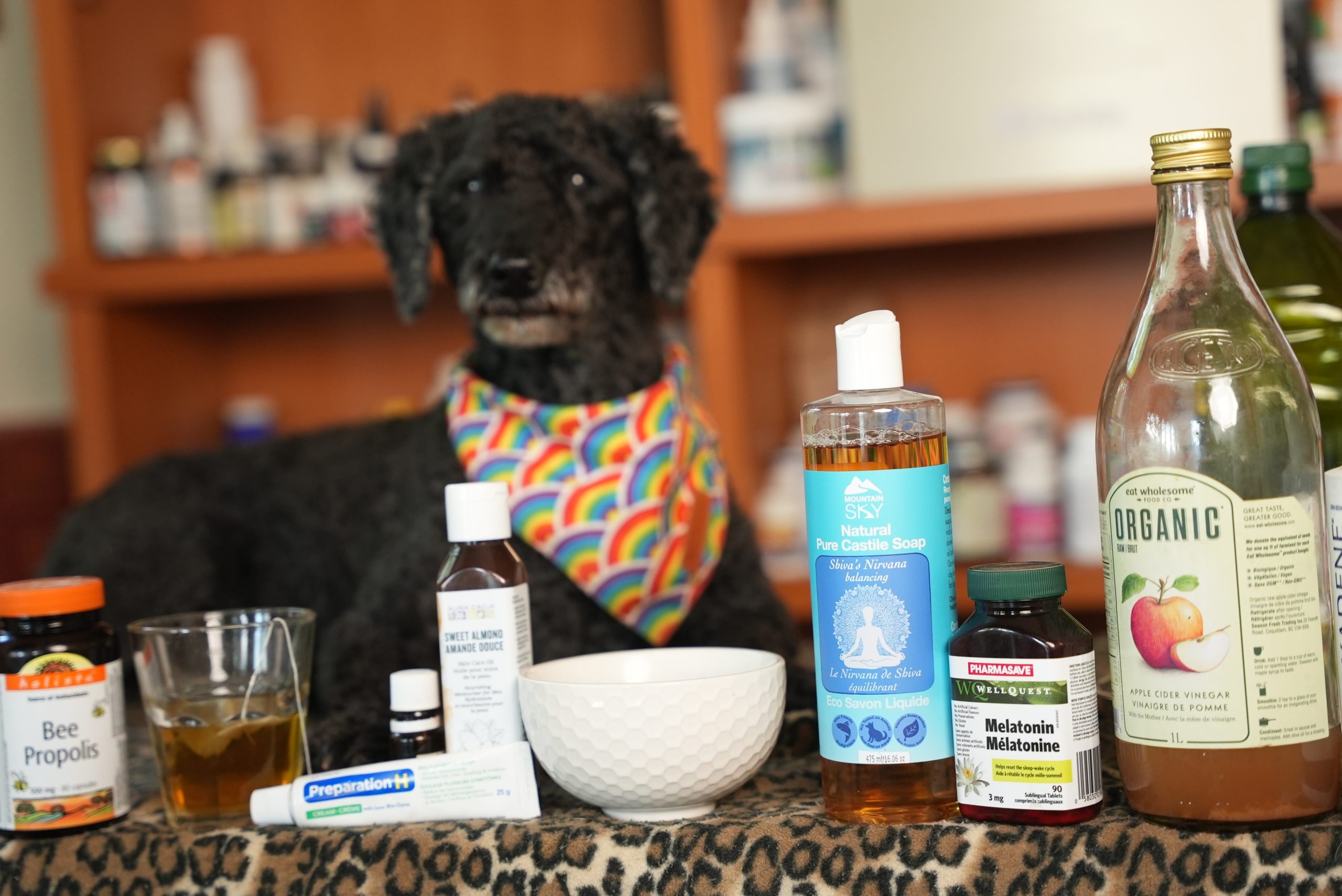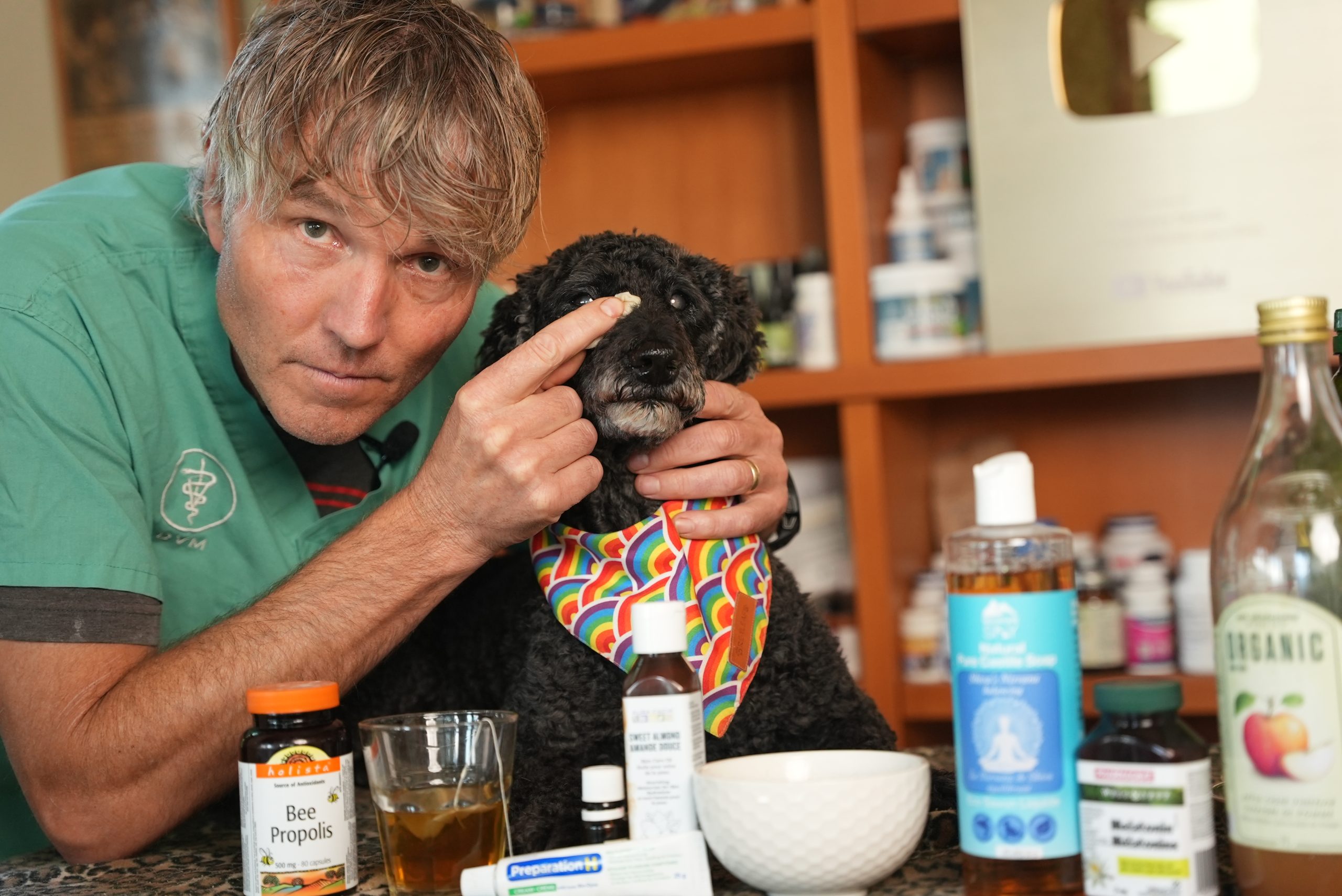How to Manage Follicular Cysts in Dogs Naturally: Top 5 Remedies
![]()
5 Easy Home Remedies for Follicular Cysts in Dogs
If your dog is dealing with follicular cysts, you’re not alone. These cysts are common and can cause discomfort, swelling, and even infection. Fortunately, there are several simple, natural remedies you can try at home to help treat and manage the condition. In this post, I’ll walk you through 5 easy and effective steps to manage follicular cysts and keep your dog feeling their best.
Whether you’re dealing with a mild case or a recurring issue, these home remedies are an excellent starting point to help your pet feel more comfortable. And remember, caring for your dog’s skin and overall health is key to preventing future outbreaks.
Promote Healthy Skin and Joints with Dr. Jones’ Ultimate Omega 3 Formula
In addition to treating follicular cysts, I recommend supporting your dog’s skin, joints, and overall health with Dr. Jones’ Ultimate Omega 3 Formula for Dogs and Cats. This 100% natural Antarctic Krill Oil is packed with Omega-3 fatty acids, including EPA and DHA, which offer a wide range of benefits for your pet:
-
Skin Health: Helps manage signs of allergic skin disease.
-
Cognitive Support: Maintains brain function and resilience.
-
Joint Health: Reduces inflammation and supports mobility.
-
Anxiety Relief: Helps reduce stress and anxiety-related behaviors.
-
Heart and Immune Health: Supports overall cardiovascular and immune function.
Choose Dr. Jones’ Ultimate Omega 3 Formula for your pet’s holistic well-being, and let’s help them live a healthier, more comfortable life!


5 Easy Home Remedies for Follicular Cysts in Dogs
Follicular cysts are one of the most common skin conditions in dogs. These cysts, caused by blocked or damaged hair follicles, can become painful, itchy, and prone to infection. If your dog is suffering from follicular cysts, don’t worry! I’m here to guide you through some natural and effective home remedies that can help manage the condition and alleviate discomfort.
What Are Follicular Cysts?
Follicular cysts form when hair follicles, which are the tube-like structures where hair originates, become obstructed or damaged. These cysts often look like round, hard masses just beneath the skin, sometimes filled with a thick, cheesy-like substance. They can develop anywhere on your dog’s body and may rupture, leading to secondary infections.
Certain dog breeds, like Shih Tzus, Yorkshire Terriers, and Miniature Schnauzers, are more prone to these cysts, but they can appear in any breed. As dogs get older, their immune system tends to weaken, leading to more cysts. Underlying conditions like Cushing’s disease (hyperadrenalism) or thyroid disease can also increase the risk.
5 Steps to Treat Follicular Cysts at Home
1. Clip and Clean
The first step is to clip the hair around the cyst and clean the area thoroughly. You can use clippers or blunt scissors to remove the hair around the cyst. Then, use an antiseptic solution to clean the area. You can purchase chlorhexidine, the most common antiseptic in veterinary practice, or make a simple antibacterial solution at home using black tea, apple cider vinegar, and Castile soap (optional).
Here’s the recipe for the scrub:
-
1 cup of black tea
-
2 tablespoons of apple cider vinegar
-
2 tablespoons of Castile soap (optional)
Mix the ingredients well, and apply this scrub to the cyst at least twice a day.
2. Apply a Hot Compress
If the cyst hasn’t ruptured, hot compresses can help encourage the blockage to open and drain. You can make a simple compress with hot water and green tea for added anti-inflammatory effects. Soak a clean cloth or gauze in the warm water and apply it to the cyst for 5-10 minutes. Repeat this process 4 times a day for the best results.
If the cyst has already ruptured, continue using the compress to encourage drainage and help reduce the inflammation.
3. Treat the Infection
If the cyst has become infected, propolis is a fantastic natural antibacterial option. Propolis has anti-inflammatory properties and can be safely given to your dog at a dose of 100 milligrams per 10 lbs of body weight daily. You can use propolis for 14 to 21 days to fight the infection.
For topical treatment, tea tree oil is a potent natural antibacterial. Mix 1 tablespoon of sweet almond oil with 20 drops of tea tree oil to create a safe 1% dilution. Apply this mixture directly onto the cyst twice a day.
4. Reduce Inflammation
To help manage inflammation, CBD oil is an excellent natural anti-inflammatory. I recommend using a dose of 3 milligrams per 10 lbs of body weight twice daily, especially for open, inflamed cysts. Melatonin is another option that can help with inflammation and promote normal hair growth. A typical dose is 2 milligrams per 20 lbs of body weight, given about 1 hour before bedtime.
You can start with twice-daily doses for 14 days, then reduce to once daily.

5. Improve Skin Health
The key to preventing future follicular cysts is improving your dog’s skin barrier. Essential fatty acid supplements are great for this, especially omega-3s. I recommend a 500 mg supplement per 50 lbs of body weight twice daily. This will support healthy skin and help reduce inflammation around the hair follicles.
Additionally, bioactive Quercetin from apple peel is a powerful natural anti-inflammatory that helps with both skin health and hair growth. A typical dose is 50 mg per 15 lbs of body weight daily. You can also try applying sunflower oil topically to strengthen the skin barrier and reduce inflammation. Simply apply a small amount along your dog’s midline once a day for 2-3 weeks.

The Underlying Cause: Addressing Health Concerns
If your dog has multiple follicular cysts or if they continue to return, it may be worth checking for underlying conditions like Cushing’s disease, which affects small, older dogs. In my experience, melatonin can also be a helpful alternative treatment for Cushing’s disease.
Final Thoughts
Dealing with follicular cysts can be frustrating, especially when they keep reappearing. However, using these natural remedies consistently can help clear up the cysts and reduce the chances of future outbreaks.
If your dog is prone to follicular cysts, I recommend focusing on overall skin health, reducing inflammation, and supporting their immune system with a high-quality supplement. My Dr. Jones’ Ultimate Canine Advanced Plus Health Formula provides comprehensive health support for your dog, including Omega 3 fatty acids, probiotics, and anti-inflammatory ingredients to keep your pet feeling great.












